Steneck-Mayer Lecture
Monday, May 4, 5:15 - 6:00 PM
The Steneck-Mayer Lecture is named after Nick Steneck and Tony Mayer, the founders of the World Conferences on Research Integrity. The lecture aims to focus on one or more important issues that affect researchers, research institutions, and/or the research system at large and is intended to be an original, insightful, creative and inspiring contribution to the Conference.

Prof. Robbert Dijkgraaf
The 2026 Steneck-Mayer lecturer is Robbert Dijkgraaf. He has been the president of the Netherlands Academy of Arts and Sciences, was the director of Princeton Institute for Advanced Study and recently was Minister (Secretary of state) of Education, Culture and Science in the Netherlands. Currently Robbert Dijkgraaf is University Professor of Science and Society from an International Perspective at the University of Amsterdam and the President-Elect of the International Science Council. In his diverse roles Robbert Dijkgraaf has consistently taken a strong stance for academic freedom, research integrity and open science.
Plenary Speakers
Plenary 1 - Misuse of AI by Paper Mills
Monday, May 4, 8:30 - 10:00 AM
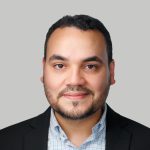
Dr. Daniel Moreira
Dr Daniel Moreira obtained his PhD in computer science from the University of Campinas, Brazil, and is an Assistant Professor at Loyola University in Chicago. His team applies machine learning and media forensics to maximise the application of AI for societal benefit, including the detection of AI misuse in research publications.

Prof. Stefan Stender
Prof Stefan Stender obtained his MD from Aarhus University, and his PhD from the University of Copenhagen, Denmark. He is a specialist clinical biochemist and Associate Professor at Rigshospitalet, Copenhagen University Hospital, where his research team studies the genetics of common diseases using AI-ready human health datasets.
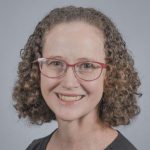
Dr. Renee Hoch
Dr Renee Hoch is Head of Publishing Ethics at PLOS. After a research career in developmental neurobiology, Dr Hoch entered scientific publishing in 2013 as an associate editor at PLOS One. She joined the PLOS Publication Ethics team in 2018 and is now Head of Publication Ethics.
Plenary 2 - GenAI and Research integrity: Global Ethics, African Wisdom, Shared Responsibility
Tuesday, May 5, 8:30 - 10:00 AM
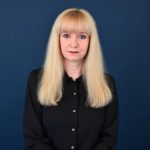
Dr. Lorna Waddington
Dr Lorna Waddington is Associate Professor of International History at the University of Leeds and Academic Lead for Academic Integrity. Her research examines ideology, foreign policy, and atrocity in the twentieth century, including Britain’s responses to genocide.

Dr. H. Titilola Olojede
H. Titilola Olojede is a Lecturer and the Head of the Department of Philosophy at the National Open University of Nigeria (NOUN). Titilola works at the intersection of ethics, African philosophy, and gender philosophy. Her current research focus is on the ethics of artificial intelligence. She is a recipient of several research and travel grants. She has published relevant papers, including, Influence of GenAI on Higher Education in Nigeria, Techno-solutionism a Fact or Farce? , and Towards Africa AI Ethical Principles. She is a member of committees on ethical integration of AI into higher education.

Dr. Retha Visagie
Dr. Retha Visagie is a certified Senior Research Management Professional (IRRC) and a leading voice in research integrity and ethics governance across Africa. With over a decade of experience, she has developed tailored training programs, policies, and systems for researchers, administrators, and ethics committees. As co-founder and co-chair of SARIMA’s Northern Regions Community of Practice, she fosters regional collaboration and best practices. She leads Unisa’s role in the Gates-funded SARIMA Capacity Strengthening Project and co-authored the SADC Research Ethics Guidelines and Nagoya Protocol Toolkit. Currently chairing the EthiXPERT Board and co-PI on the RHInnO Ethics AI Project, she champions Afrocentric, AI-driven ethics governance. A UNESCO-trained ethics educator and one of three Virt2ue trainers in South Africa, she has trained over 7,000 individuals. Her work has earned multiple awards and advanced policy reform, capacity building, and institutional ethics. She continues to supervise postgraduates and publish widely in peer-reviewed outlets.
Plenary 3 - Championing Research Integrity: Insights from the Einstein Foundation Award Winners
Tuesday, May 5, 1:30 - 3:00 PM

Tim Errington
Tim Errington is the Senior Director of Research at the Center for Open Science (COS) that aims to increase openness, integrity, and reproducibility of scientific research. In that position he conducts and collaborates with researchers and stakeholders across scientific disciplines and organizations on metascience projects aimed to understand the current research process and evaluate initiatives designed to increase reproducibility and openness of scientific research. These include large scale replication and reproducibility projects such as the Reproducibility Project: Cancer Biology and the DARPA supported Systematizing Confidence in Open Research and Evidence (SCORE), and evaluation projects of new initiatives such as open science badges, Registered Reports, automated confidence assessment, and pilot programs to increase rigor and openness of research.

Brandon Stell
Brandon Stell is a neuroscientist with the CNRS in Paris, France. His research explores how the brain coordinates and adapts movement in response to a changing environment. He earned his undergraduate degree in biology from the University of Colorado and completed his PhD in 2005 at UCLA, where he trained with Istvan Mody. After his doctoral work, he moved to Paris as a postdoctoral researcher and has held a permanent position with the CNRS since 2014. In 2012, in his spare time, he co-founded PubPeer, a website dedicated to the community-based evaluation of scientific publications, which he now runs with fellow CNRS researcher Boris Barbour. Together, they also lead the nonprofit PubPeer Foundation, which supports the platform. This work is carried out independently of their CNRS roles.
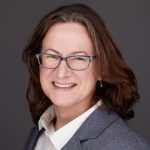
Dr. Elisabeth Bik
Elisabeth Bik, PhD, is a Dutch-American microbiologist who has worked for 15 years at Stanford University and 2 years in industry. Since 2019, she is a science integrity volunteer and consultant who scans the biomedical literature for images or other data of concern. She has found over 8,000 problematic scientific papers. Her work has resulted in over 1,300 retractions and another 1,000 corrections. For her work on exposing threats to research integrity, she received the 2021 John Maddox Prize and the 2024 Einstein Foundation Award.
Plenary 4 - Research Security and Integrity
Wednesday, May 5, 8:30 - 10:00 AM

Carthage Smith
Carthage Smith joined the OECD as head of the Global Science Forum (GSF) Secretariat in 2014. He is responsible for working with countries to define the overall strategy and priorities for the Forum. This includes policy work on research infrastructures, Open Science, research funding mechanisms, science advisory processes and research careers. He has been leading the GSF team working on Research Security since 2021. Carthage was originally trained as a biochemist, with a PhD in neuroscience. Prior to joining the GSF secretariat, he was Deputy Executive Director of the International Council for Science (ICSU, Paris) for twelve years. Before moving to France, he spent six years at the UK Medical Research Council, where he was Head of International Cooperation.
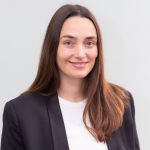
Sakine Weikert
Sakine Weikert is head of the Centre for International Academic Cooperation (KIWi) at the German Academic Exchange Service (DAAD). KIWi offers German universities individual advice on the strategic development and expansion of international cooperation under ever more complex framework conditions. Focus topics are research security, science diplomacy or legal frameworks, which are combined with DAAD’s worldwide regional expertise.
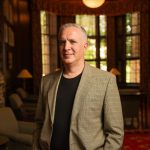
Richard Gold
Richard Gold brings 35 years of academic and private-sector experience to his policy work on innovation, economic growth, and open science. A former technology lawyer at a leading international firm, he currently holds the title of Distinguished James McGill Professor in Innovation and Intellectual Property, Director of McGill’s Centre for Intellectual Property Policy (CIPP), and Chief Policy and Partnerships Officer at Conscience. With training in law (LL.B [Toronto], LL.M and S.J.D [Michigan]) and computer science (B.Sc. [McGill]), he integrates technical, business, and legal expertise to investigate how law interacts with other social systems shaping innovation outcomes.
